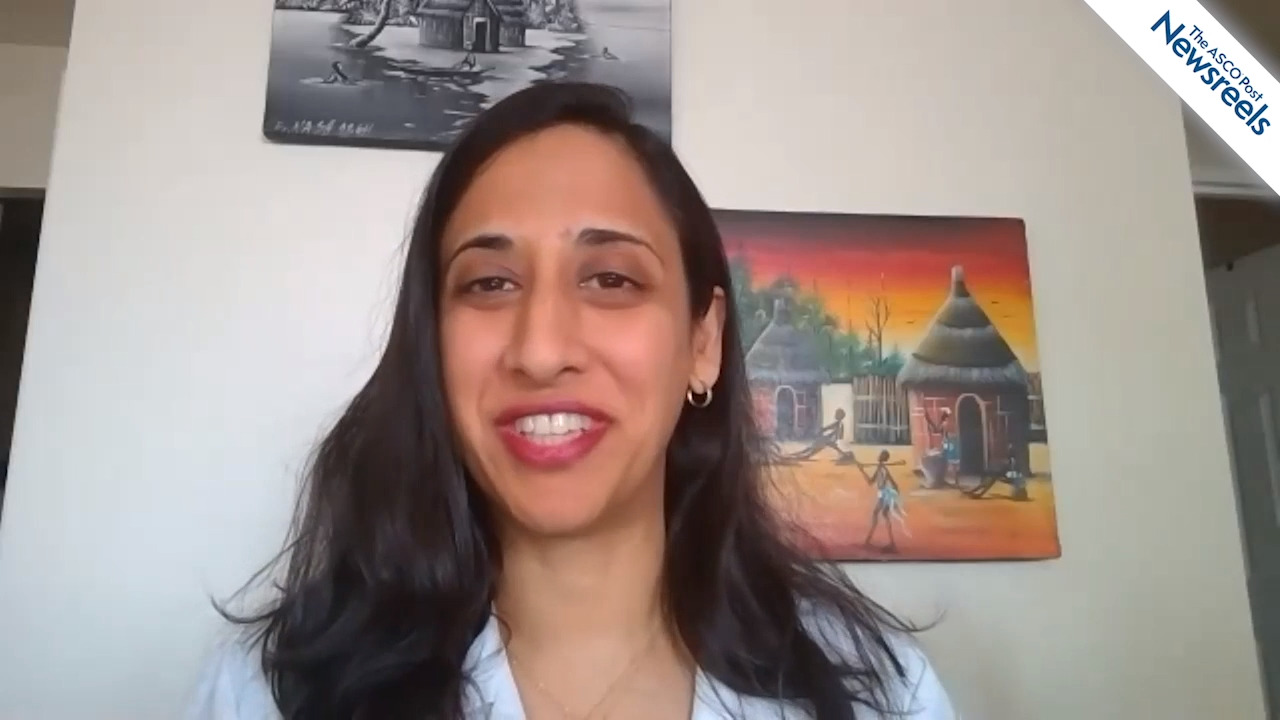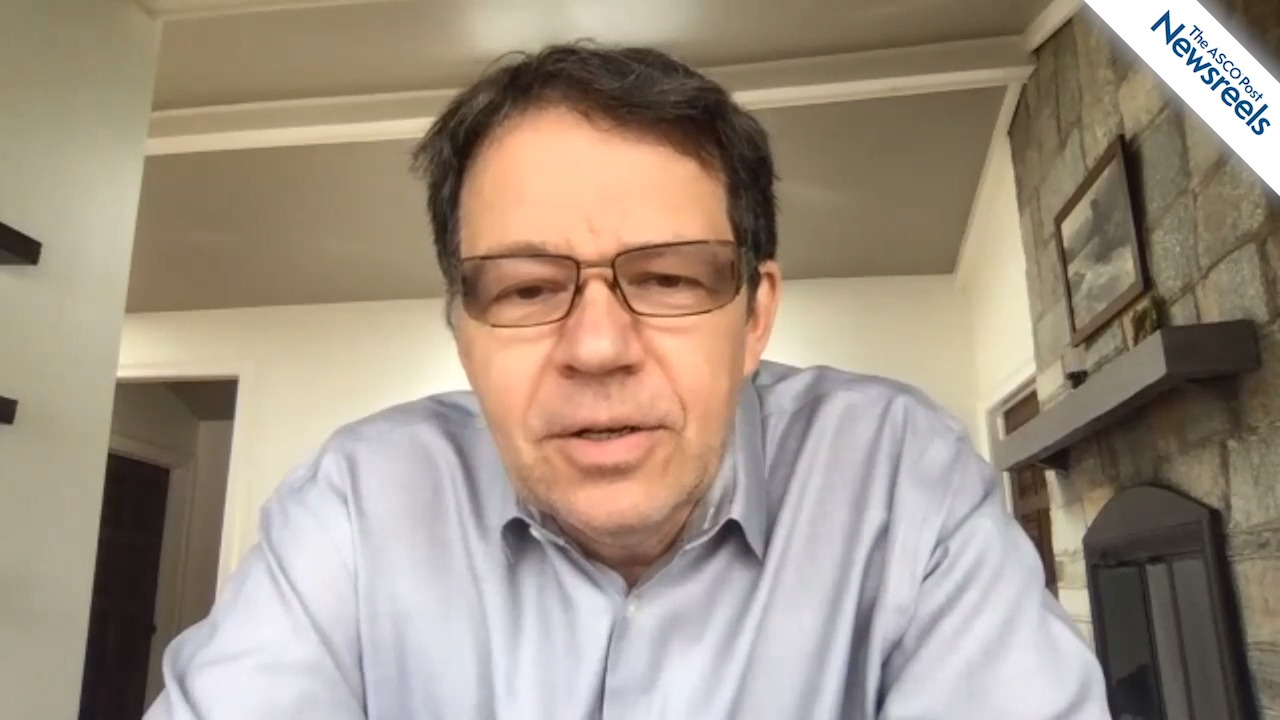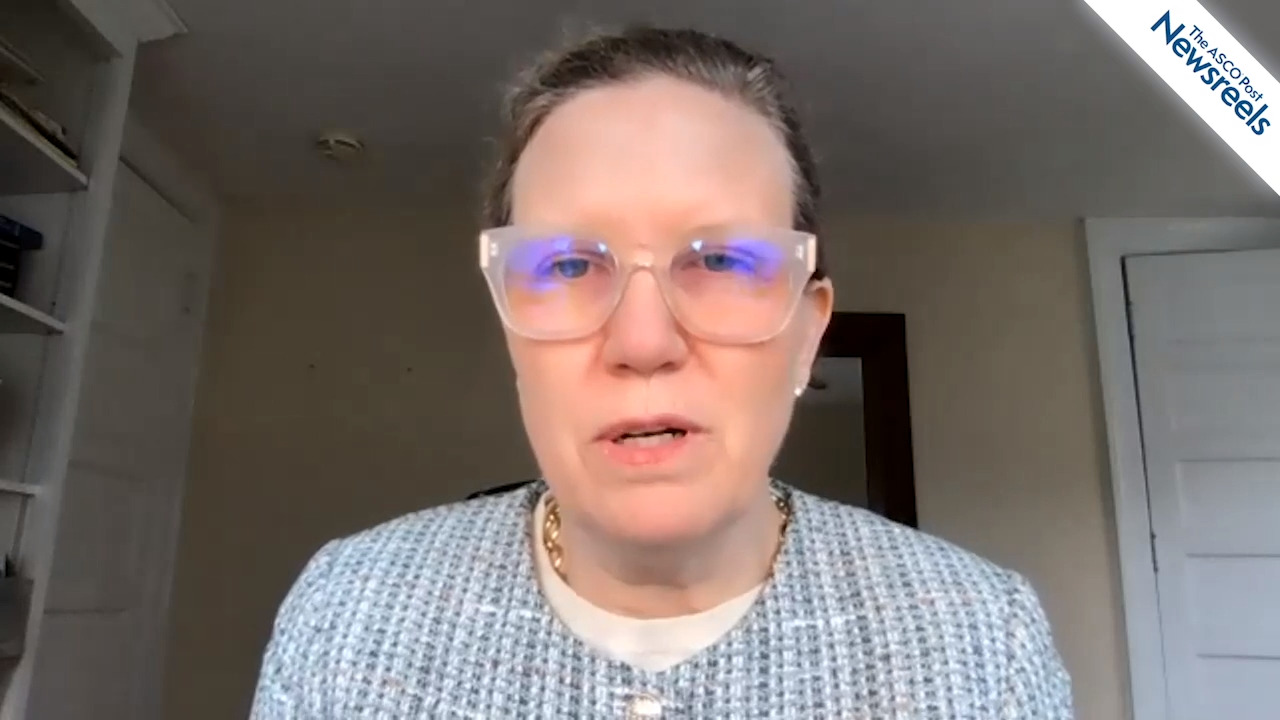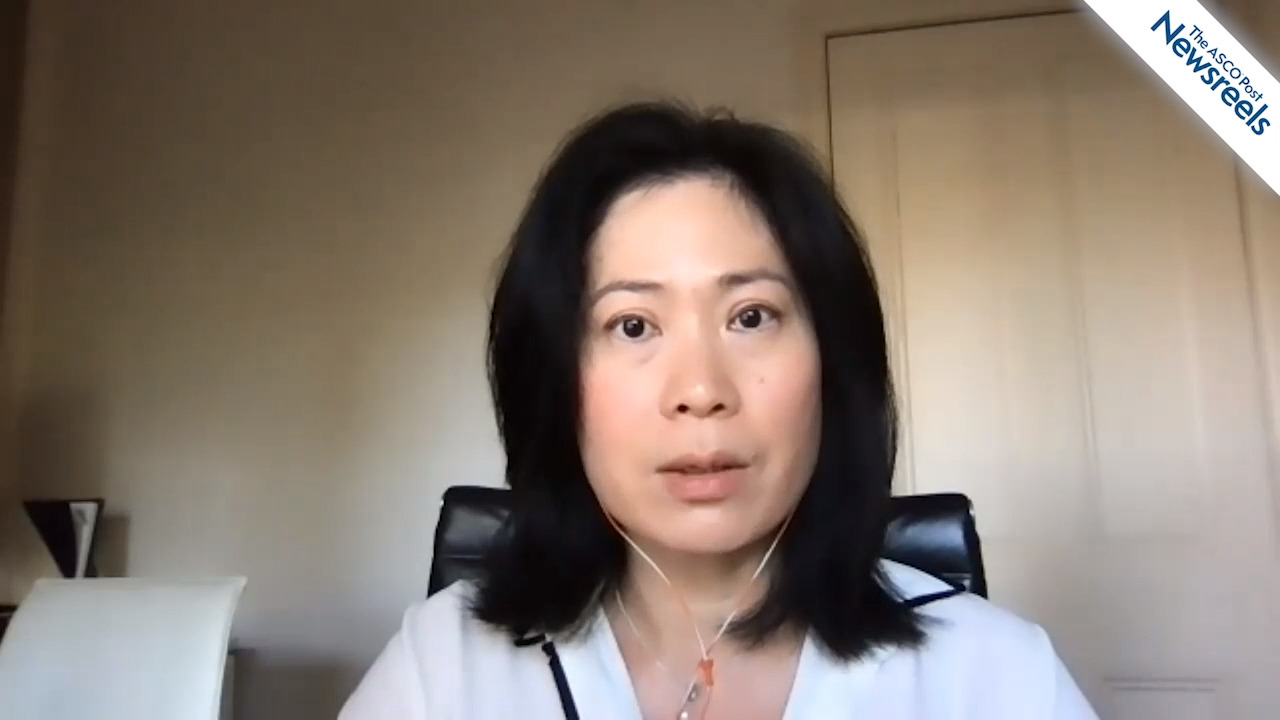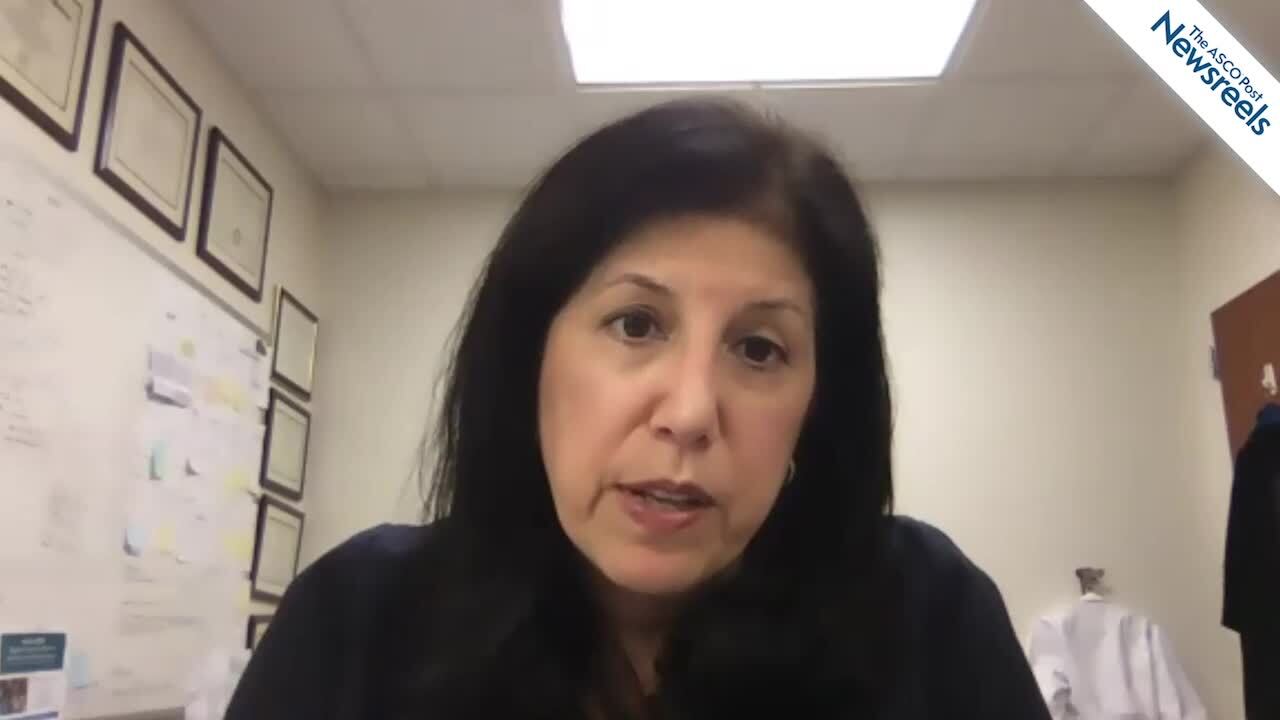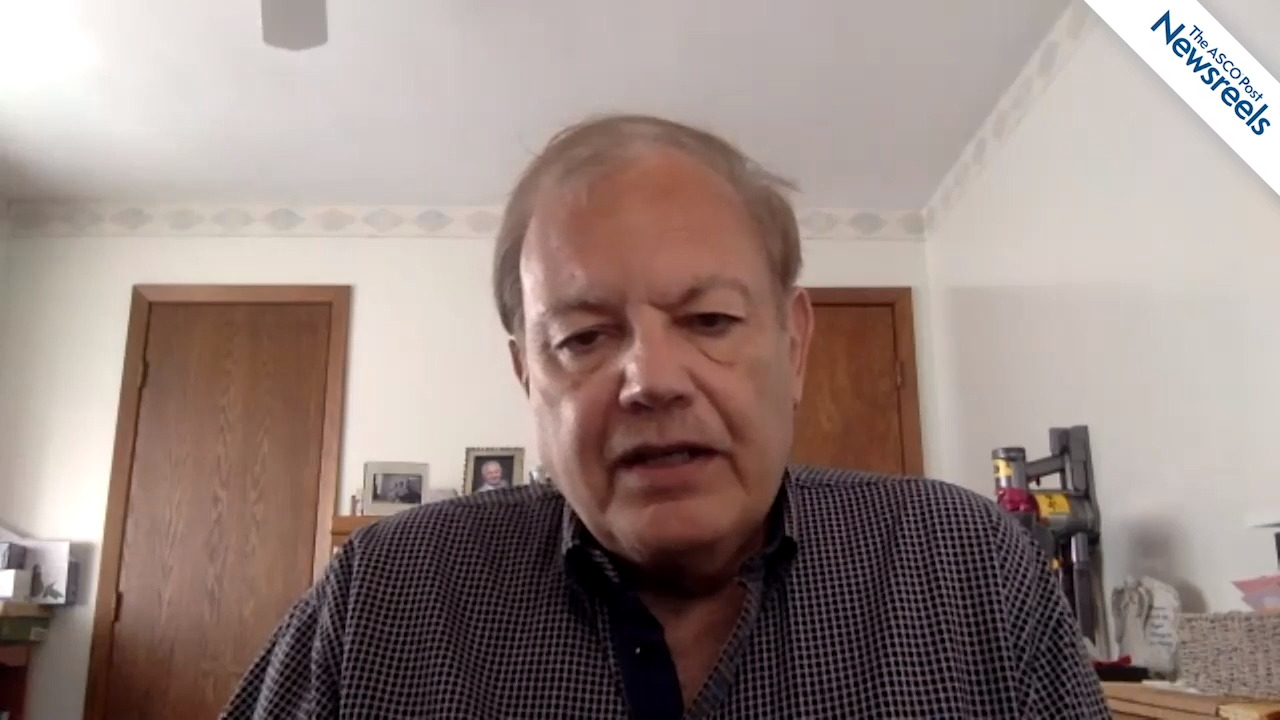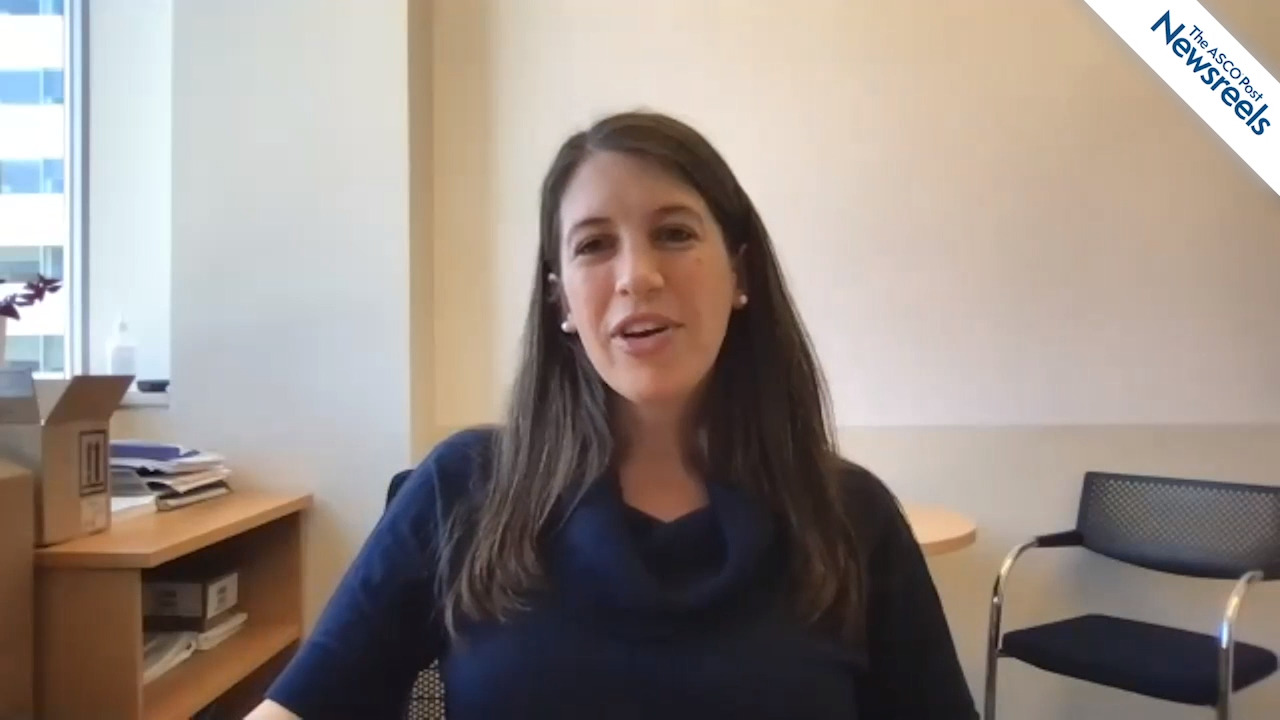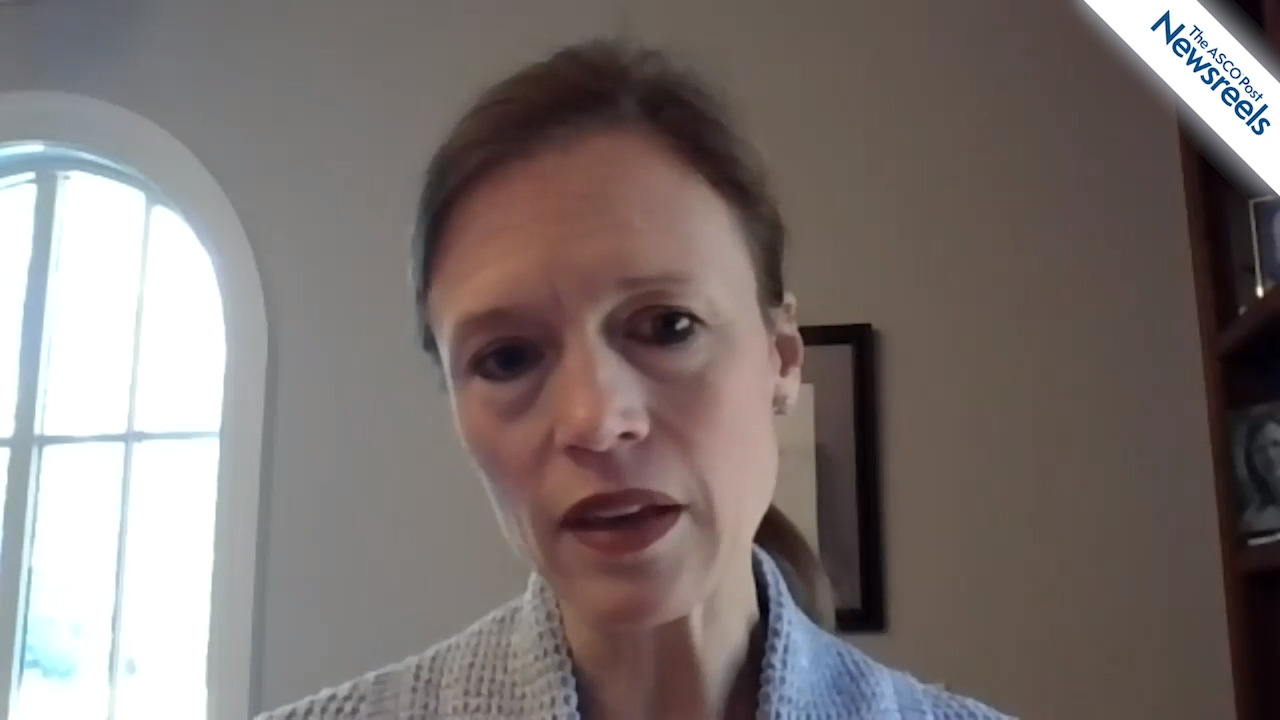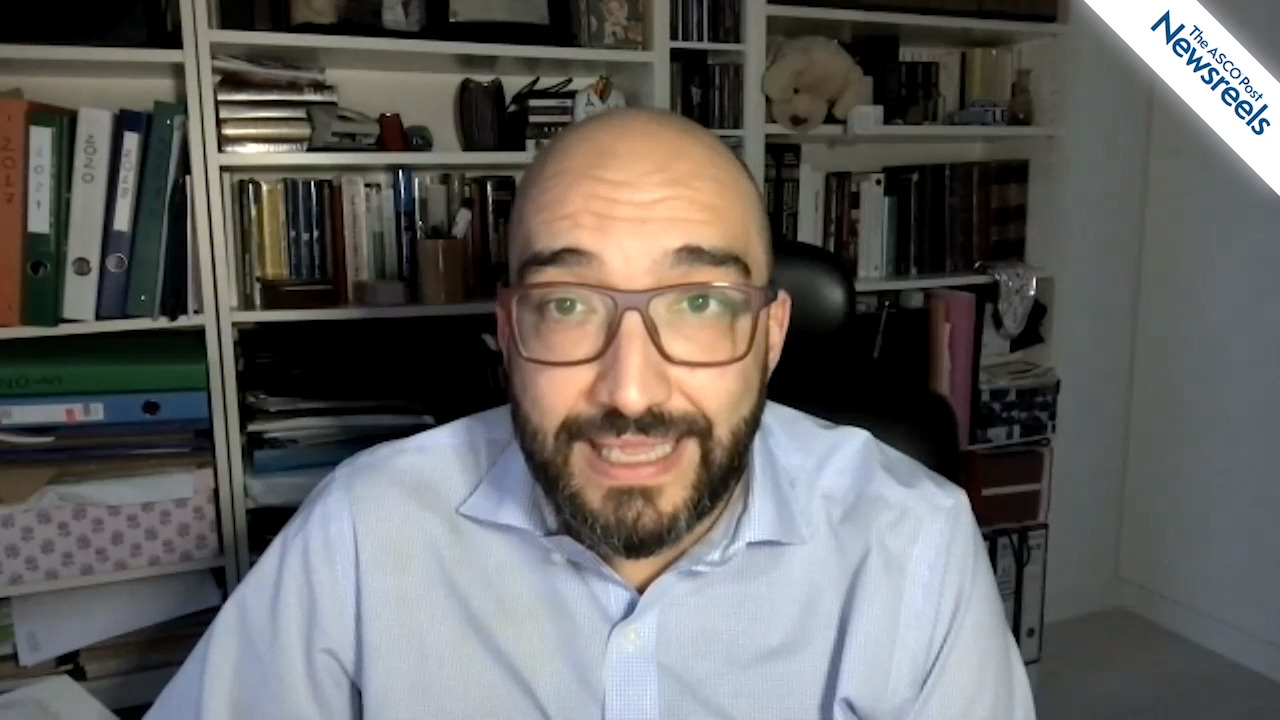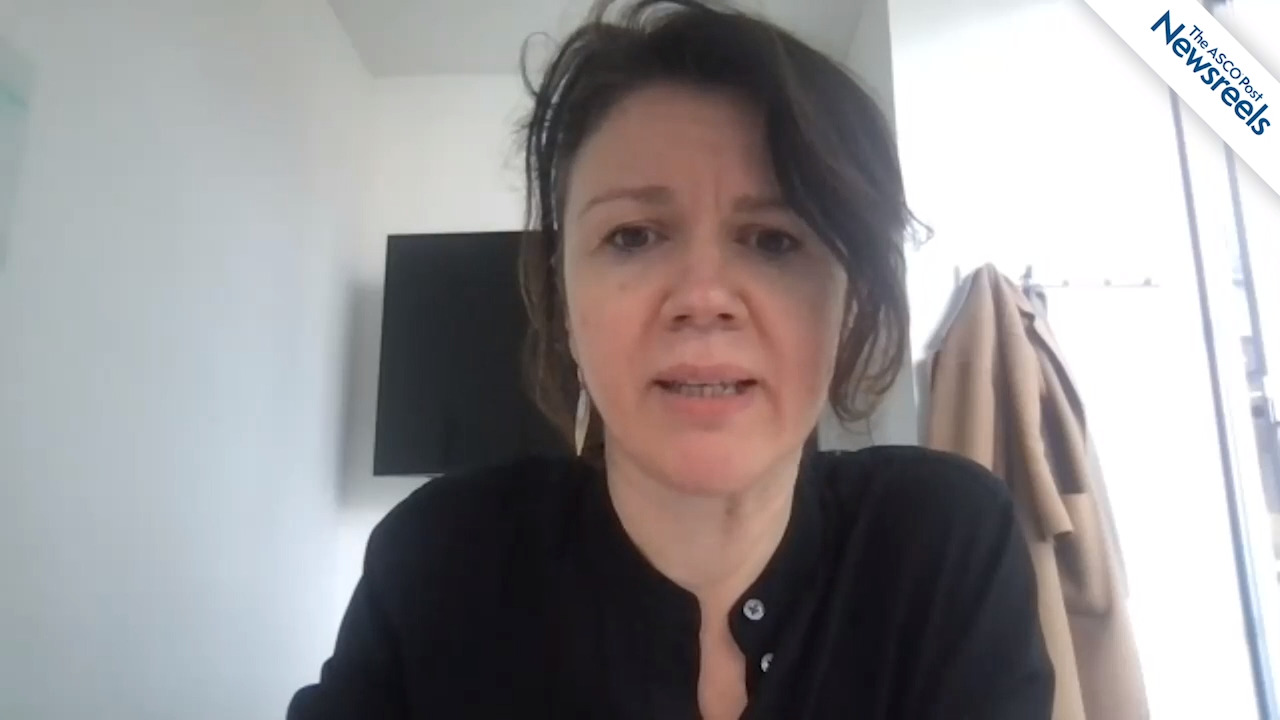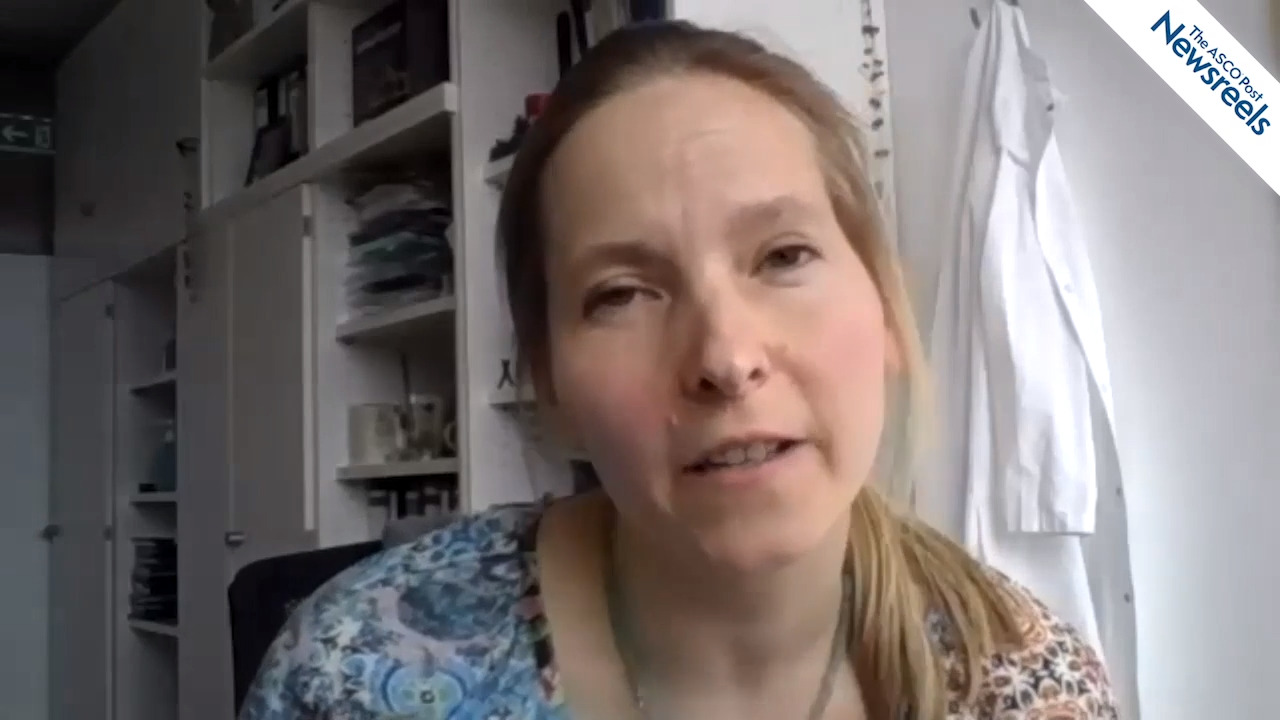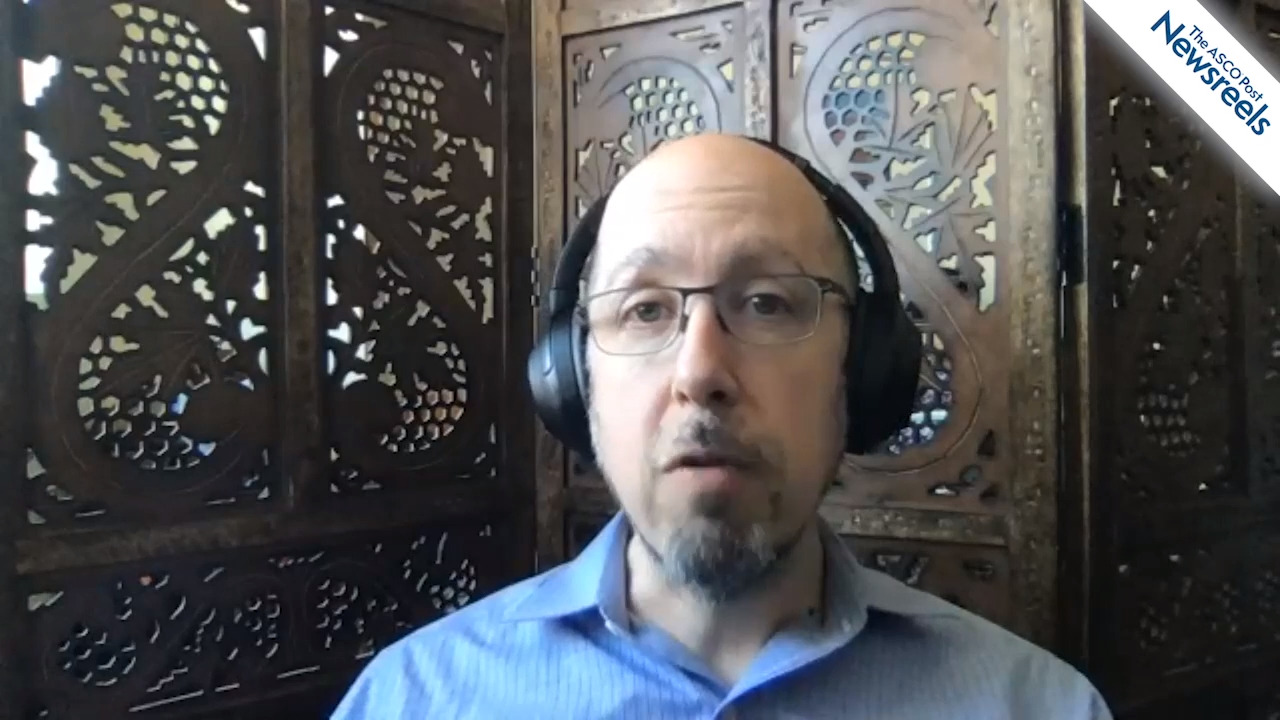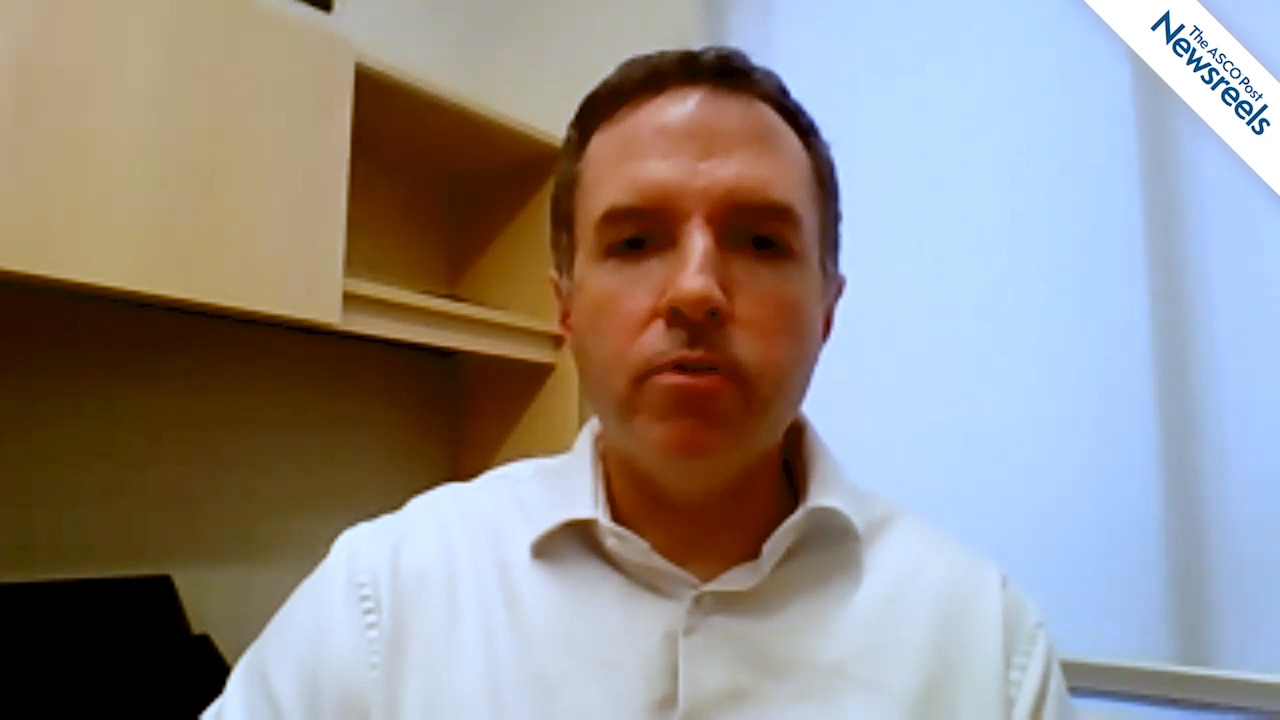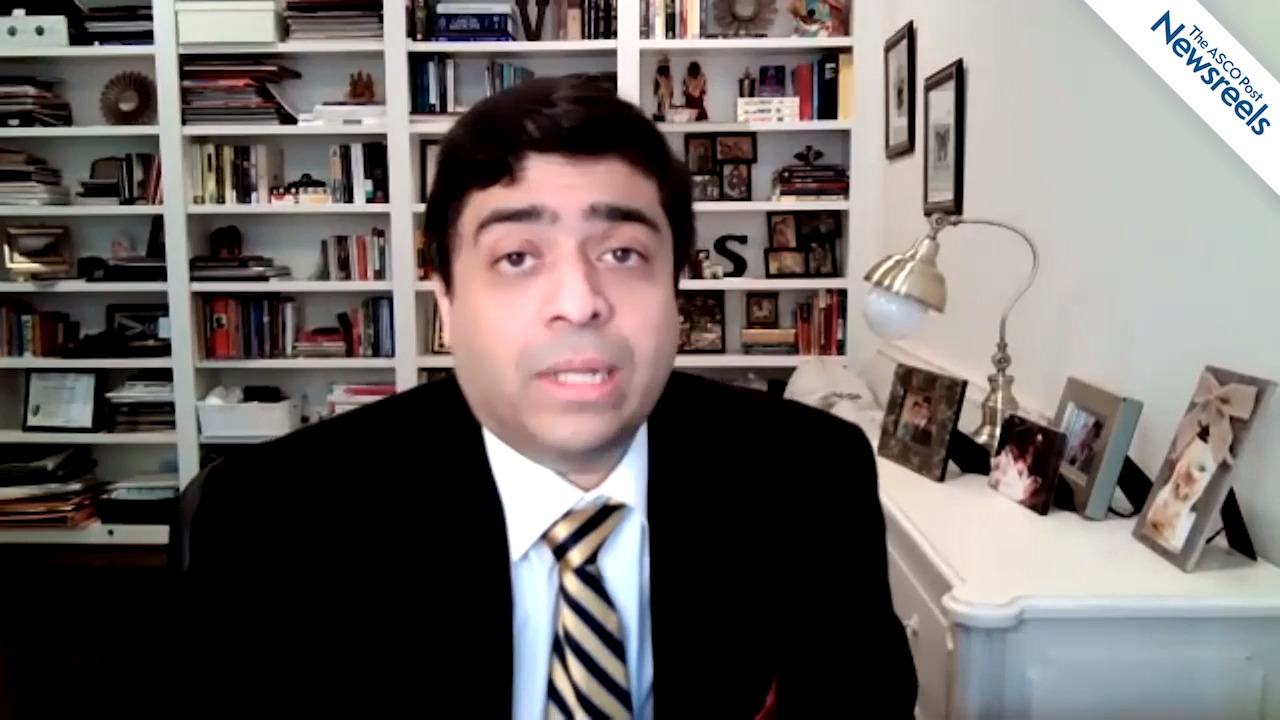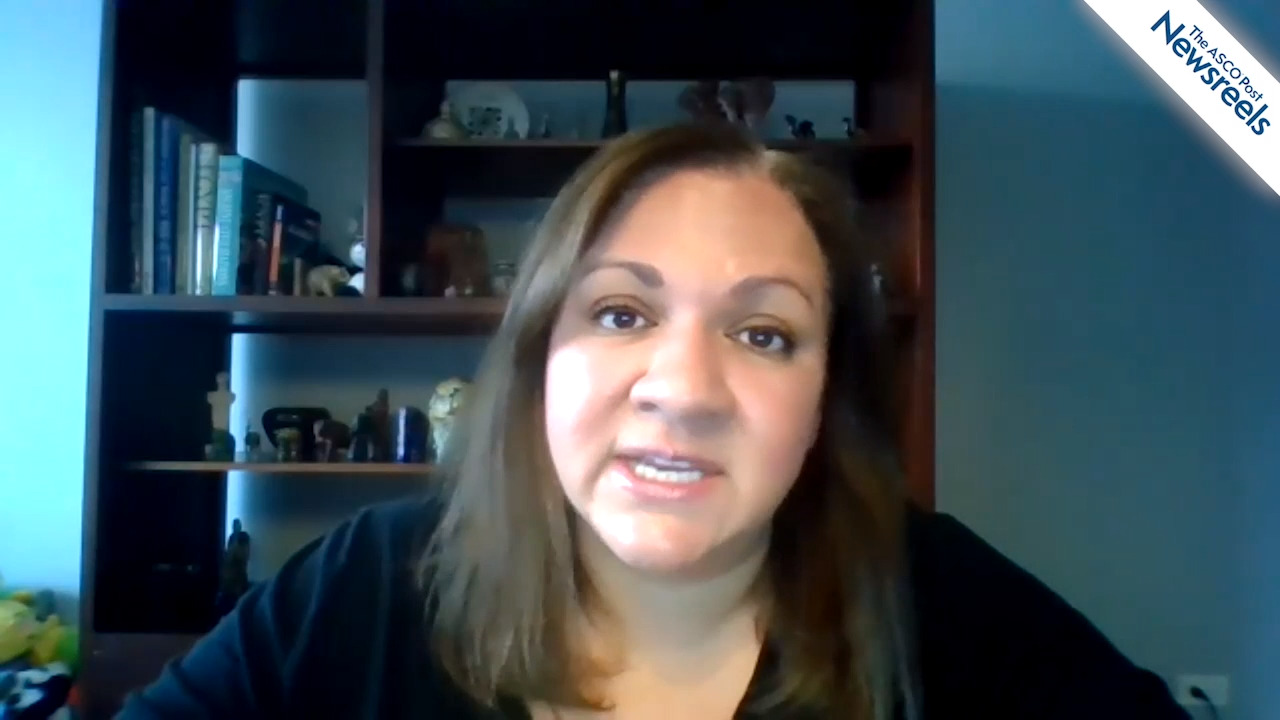AACR Annual Meeting 2021
Oncolytic Virotherapy Achieves Early Signs of Success in High-Grade Gliomas
Treatment with genetically engineered oncolytic herpes simplex virus type 1 (HSV-1) G207 alone or with radiation resulted in encouraging outcomes in a small study of pediatric patients with high-grade...
Selpercatinib Makes Inroads in Other RET Fusion–Positive Tumor Types
The selective RET inhibitor selpercatinib is now approved for RET fusion–positive lung and thyroid cancers. New evidence presented at the virtual edition of the American Association for Cancer Researc...
Expert Point of View: Stefania Scala, MD
Formal discussant Stefania Scala, MD, of the Istituto Nazionale Tumori IRCCS Fondazione Pascale, Naples, was impressed by the findings of KEYNOTE-629. “The second interim analysis for the locally adva...
Single-Agent Pembrolizumab Yields High Response Rates in Patients With Cutaneous Squamous Cell Carcinoma
Single-agent pembrolizumab achieved durable responses and promising survival in patients with locally advanced or recurrent/metastatic cutaneous squamous cell carcinoma, according to the second interi...
Dual BRAF/MEK Inhibition Under Study in BRAF V600E–Mutant Gliomas
The combination of dabrafenib plus trametinib led to encouraging and durable responses in patients with low- and high-grade gliomas harboring BRAF V600E mutations, according to the results of the phas...
Expert Point of View: Alexander Eggermont, MD, PhD
Formal discussant of CheckMate 915, Alexander Eggermont, MD, PhD, Chief Scientific Officer at the Princess Máxima Center for Pediatric Oncology, Utrecht, Netherlands, suggested that the lower doses of...
Comparing Nivolumab Plus Ipilimumab vs Nivolumab Alone in Resected Stage III to IV Melanoma
The addition of ipilimumab to nivolumab failed to improve outcomes compared with nivolumab alone as adjuvant therapy for resected melanoma, according to the results of the CheckMate 915 trial, present...
CHRONOS-3: Addition of Copanlisib to Rituximab Extends Progression-Free Survival in Relapsed Indolent NHL
The combination of the PI3K inhibitor copanlisib plus the monoclonal antibody rituximab reduced the risk of disease progression or death by 48% compared with placebo plus rituximab in patients with re...
Expert Point of View: Caroline Robert, MD
This is the first randomized trial that is positive for overall survival in uveal melanoma, and I’m very excited about the results, which I consider seminal and practice-changing,” said formal discuss...
Tebentafusp Shows Overall Survival Benefit in First-Line Treatment of Metastatic Uveal Melanoma
Treatment with tebentafusp—a novel bispecific fusion protein—reduced the risk of death from metastatic uveal melanoma by half, compared with available treatments, in a phase III study presented at the...
Expert Point of View: Jhanelle E. Gray, MD
Formal discussant of the CheckMate 816 trial, Jhanelle E. Gray, MD, of Moffitt Cancer Center, Tampa, said that both neoadjuvant and adjuvant therapies have been shown to improve overall survival and r...
CheckMate 816: Neoadjuvant Nivolumab Plus Chemotherapy Boosts Pathologic Complete Response in Resectable NSCLC
Neoadjuvant chemotherapy with nivolumab plus platinum-doublet chemotherapy significantly improved pathologic complete response rates compared with chemotherapy alone in patients with resectable stage ...
Expert Point of View: Ezra E.W. Cohen, MD
Formal discussant of the FOENIX-CCA2 trial, Ezra E.W. Cohen, MD, of the University of California San Diego and Moores Cancer Center, was encouraged by the findings with highly selective targeted agen...
Expert Point of View: Antoni Ribas, MD, PhD
“This study is important because of the large numbers of genetic samples and the significance of the results,” stated Antoni Ribas, MD, PhD, President of the American Association for Cancer Research a...
Heritability Genes Identified in Childhood Neuroblastoma
Researchers have made progress in unravelling the genetic underpinnings of pediatric neuroblastoma. Two main inherited pathogenic genetic variants have been identified and appear to be associated with...
Georgina V. Long, MD, PhD, on Melanoma: Nivolumab Plus Ipilimumab vs Nivolumab Alone
Georgina V. Long, MD, PhD, of the Melanoma Institute Australia, University of Sydney, discusses results of the CheckMate 915 trial, which may reinforce nivolumab as an adjuvant standard of care in pat...
Lipika Goyal, MD, on Treating Intrahepatic Cholangiocarcinoma With Futibatinib
Lipika Goyal, MD, of Massachusetts General Hospital, discusses phase II results of the FOENIX-CCA2 trial, which explored the clinical benefit of futibatinib, an FGFR1–4 inhibitor, tested in patients w...
Michel Sadelain, MD, PhD, on the Road to Synthetic Immunity: Novel CAR Designs
Michel Sadelain, MD, PhD, of Memorial Sloan Kettering Cancer Center, discusses the challenges in developing CAR T-cell therapy, as well as the progress being made, such as creating hybrid CAR and T-ce...
Matthew G. Vander Heiden, MD, PhD, and Karen H. Vousden, PhD: A Conversation About the Role of Diet in Cancer
Karen H. Vousden, PhD, of The Francis Crick Institute, and Matthew G. Vander Heiden, MD, PhD, of the Koch Institute for Integrative Cancer Research at MIT, discuss emerging evidence that diet may affe...
Ralph R. Weichselbaum, MD, on Oligometastasis: Biologic Basis and Therapeutic Opportunities
Ralph R. Weichselbaum, MD, of the University of Chicago, discusses oligometastasis as a part of the metastatic spectrum where ablative therapies, such as surgery or stereotactic body radiotherapy, may...
Charlotte E. Ariyan, MD, PhD, on Metastasectomy After Immunotherapy: Is It Effective?
Charlotte E. Ariyan, MD, PhD, of Memorial Sloan Kettering Cancer Center, discusses improved outcomes with metastasectomy in the setting of checkpoint inhibitors, with the removal of residual disease a...
Jeanne Tie, MD, MBChB, on Circulating Tumor DNA, Minimal Residual Disease, and Adjuvant Treatment
Jeanne Tie, MD, MBChB, of the Peter MacCallum Cancer Centre, discusses how to improve the current, somewhat imprecise, approach based on pathologic staging alone, used to select patients for adjuvant ...
Joann G. Elmore, MD, MPH, on Cancer Diagnosis: When Pathologists Disagree, Artificial Intelligence May Help
Joann G. Elmore, MD, MPH, of the UCLA Fielding School of Public Health, discusses previous studies that show wide variability in cancer diagnoses, the uncertainties introduced by computer-aided detect...
Linda T. Vahdat, MD, MBA, on Triple-Negative Breast Cancer: Targeting the Tumor Microenvironment
Linda T. Vahdat, MD, MBA, of Memorial Sloan Kettering Cancer Center, discusses results of a phase II trial designed to test the concept that targeting the tumor microenvironment by depleting copper ma...
Richard S. Finn, MD, on Treating Hepatocellular Carcinoma With Atezolizumab, Bevacizumab, and Sorafenib
Richard S. Finn, MD, of UCLA Medical Center, discusses updated efficacy and safety data from the IMbrave150 trial of patients receiving atezolizumab plus bevacizumab vs sorafenib as first-line treatme...
Dennis J. Slamon, MD, PhD, on Exploiting Cancer Biology in Developing New Treatment Paradigms
Dennis J. Slamon, MD, PhD, of the UCLA David Geffen School of Medicine, reflects on the ways in which breast cancer research pioneered the targeted treatment approach, as understanding of the basic bi...
Katelyn T. Byrne, PhD, on the Clinical Impact of T-Cell Inflammation in the Tumor Microenvironment
Katelyn T. Byrne, PhD, of the Perelman School of Medicine at the University of Pennsylvania, discusses the first in-depth analysis of the impact of selicrelumab, an anti-CD40 antibody, which was found...
Carey K. Anders, MD, on Brain Metastases: Integrating Immunotherapy Into Clinical Care
Carey K. Anders, MD, of the Duke Cancer Center, discusses the ways in which treatment of brain metastases arising from solid tumors has moved into a new era of patient care and how the field may advan...
Cancer Aneuploidy May Predict Response to Immunotherapy in Patients With NSCLC
Lower levels of cancer aneuploidy were associated with more favorable outcomes after immune checkpoint inhibition in patients with non–small cell lung cancer (NSCLC), according to data presented by Al...
Enrique Grande, MD, PhD, on Urothelial Carcinoma: Treatment With Atezolizumab, Platinum, and Gemcitabine
Enrique Grande, MD, PhD, of The University of Texas MD Anderson Cancer Center, Madrid, discusses phase III overall survival results from the IMvigor130 study of atezolizumab plus platinum and gemcitab...
Samra Turajlic, MBBS, PhD, on Understanding Metastatic Disease in Renal Cancer and Melanoma
Samra Turajlic, MBBS, PhD, of The Francis Crick Institute, discusses our limited understanding of metastases in terms of the timing of dissemination, the many metastatic phenotypes and varieties of se...
Brian I. Rini, MD, on Renal Cell Carcinoma: Data on Atezolizumab, Bevacizumab, and Sunitinib
Brian I. Rini, MD, of Vanderbilt University, discusses the IMmotion151 trial results on overall survival and the association of gene expression and clinical outcomes with atezolizumab plus bevacizumab...
Pediatric Patients With High-Grade Gliomas: Treatment With Oncolytic HSV-1 G207 Immunovirotherapy
In a phase I trial reported at the virtual American Association for Cancer Research (AACR) Annual Meeting 2021 (Abstract CT018) and simultaneously published in The New England Journal of Medicine, Fri...
Liquid Biopsy Plus MRI for Predicting Response to Neoadjuvant Chemotherapy in Patients With Breast Cancer
Cirmena et al discussed whether using a liquid biopsy test to assess plasma cell-free DNA (cfDNA) integrity could improve the accuracy of magnetic resonance imaging (MRI) for predicting the achievemen...
Patients With Ovarian Cancer Face an Increased Risk of Mental Illness
Women diagnosed with ovarian cancer were more than three times more likely than the general public to be diagnosed with anxiety, depression, and adjustment disorder, according to results presented by ...
Patients of Different Races With Early-Onset Colorectal Cancer Exhibit Distinct Genetic Features
Racial differences in genetic mutations were observed among patients with early-onset colorectal cancer, according to data presented by Andreana N. Holowatyj, PhD, MS, during the virtual American Asso...
Jessica C. Hassel, MD, on Uveal Melanoma: Comparing Tebentafusp With Standard Therapies
Jessica C. Hassel, MD, of University Hospital Heidelberg, discusses phase III results of a study that compared tebentafusp, a bispecific fusion protein, with investigator’s choice in patients with met...
Matthew J. Matasar, MD, on Indolent NHL: New Data on Copanlisib Plus Rituximab
Matthew J. Matasar, MD, of Memorial Sloan Kettering Cancer Center, discusses phase III results of the CHRONOS-3 trial, which showed that copanlisib plus rituximab led to a 48% reduction in the risk of...
Patrick M. Forde, MD, on NSCLC: Nivolumab and Chemotherapy as Neoadjuvant Treatment
Patrick M. Forde, MD, of the Sidney Kimmel Comprehensive Cancer Center at Johns Hopkins University, discusses results from the CheckMate 816 trial, which showed that adding nivolumab to chemotherapy ...
Vivek Subbiah, MD, on RET Fusion–Positive Cancers: Efficacy of Selpercatinib
Vivek Subbiah, MD, of The University of Texas MD Anderson Cancer Center, discusses data on selpercatinib that showed promising activity across a variety of RET fusion–positive cancers, including treat...
Rita Nanda, MD, on Triple-Negative Breast Cancer: Emerging Therapeutic Strategies
Rita Nanda, MD, of the University of Chicago, discusses the latest data on novel treatment strategies for triple-negative breast cancer, including immune checkpoint, PARP, and ATK inhibitors; antibody...
Neoadjuvant Nivolumab Plus Chemotherapy Boosts Pathologic Complete Response Rate for Patients With Resectable NSCLC
Neoadjuvant nivolumab plus platinum-doublet chemotherapy significantly improved pathologic complete response (pCR) rates compared with chemotherapy alone in patients with resectable stage IB to IIIA n...
Copanlisib/Rituximab Extends Progression-Free Survival vs Rituximab/Placebo in Indolent Non-Hodgkin Lymphoma
The combination of copanlisib plus rituximab reduced the risk of disease progression or death by 48% compared with placebo plus rituximab in patients with indolent non-Hodgkin lymphoma, according to r...
Tebentafusp: First Treatment to Improve Overall Survival in Metastatic Uveal Melanoma
Treatment with tebentafusp, a novel bispecific fusion protein, reduced the risk of death from metastatic uveal melanoma at 14 months by half, compared with available treatments, in a phase III study p...
Unselected Autologous Tumor-Infiltrating Lymphocyte Therapy for Metastatic Cutaneous Melanoma
Treatment with unselected autologous tumor-infiltrating lymphocytes (TILs) showed early clinical efficacy among patients with advanced melanoma, according to results presented by Hawkins et al during ...
Early-Phase Study Explores CAR T-Cell Therapy for Relapsed or Refractory B-Cell Lymphoma
Bispecific anti-CD19/CD20 chimeric antigen receptor (CAR) T-cell therapy was well tolerated and showed signs of clinical efficacy in patients with relapsed/refractory B-cell lymphoma, according to pha...

